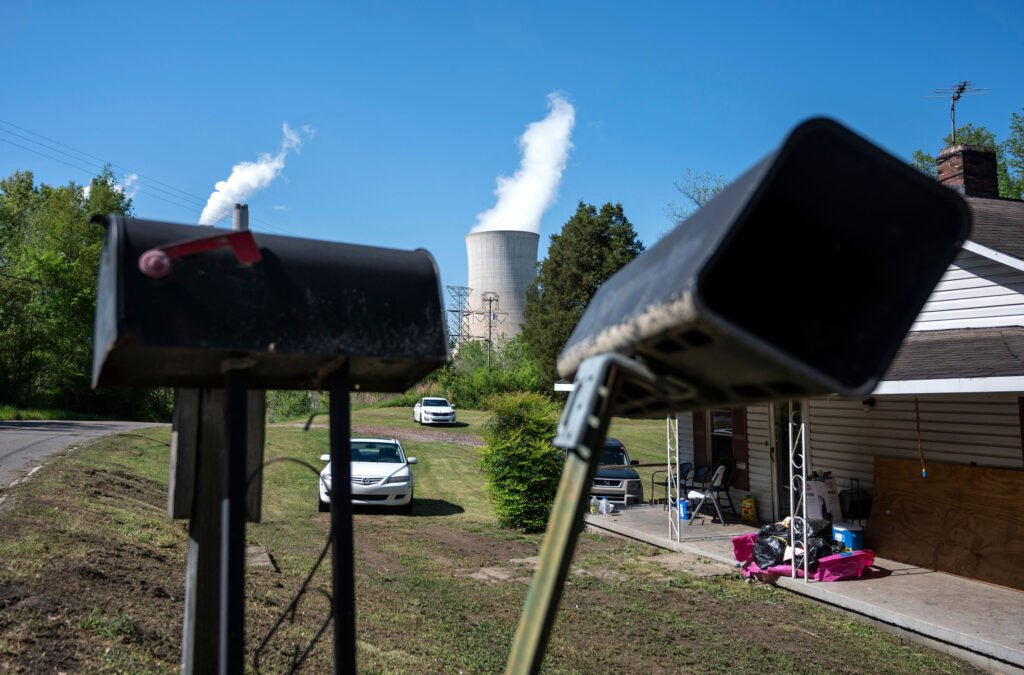About 2,000 low-income households in Alabama are poised to lose federal assistance to help them pay high energy bills, under an executive order issued by President Donald Trump.
For many of the recipients, the $100 credit had already been applied to their power bill. Now, with the funding removed, that amount will instead be added to their next bill.
Huntsville Utilities, a city-owned electric utility in north Alabama, told Inside Climate News that it had sent letters to 255 such customers last week informing them of the loss of funding.
“Community Action Agency of Huntsville/Madison & Limestone Counties has notified us that the grant you received for $100.00 on January 23, 2025 is no longer valid due to President Trump’s Executive Order to rescind the funding behind the grant,” the letter states. “The grant you received for $100.00 has been debited to your account and will be due with your next invoice.”
The funding came from a $1 million award included in the Infrastructure Investment and Jobs Act, according to the Alabama Department of Economic and Community Affairs (ADECA), the state agency that administers the federal grant.
The $1 million was to provide additional assistance to families already enrolled in the U.S. Department of Health and Human Services’ Low-Income Home Energy Assistance Program.
ADECA spokesman Mike Presley said the funding for the program was paused due to Trump’s executive order “Unleashing American Energy,” which directs agencies to “immediately pause the disbursement of funds appropriated through the Inflation Reduction Act of 2022 (Public Law 117-169) or the Infrastructure Investment and Jobs Act.”
Efforts by the Trump administration to use executive orders to revoke funding already allocated by Congress have spurred what many describe as a “constitutional crisis,” as the executive branch under Trump attempts to wrest control from the other branches of government.
Democrats and others claim the moves violate the U.S. Constitution, which clearly gives Congress the sole authority to appropriate and legislate.
“President Trump is still illegally blocking hundreds of billions of dollars in investments that are owed to communities across the country,” U.S. Sen. Patty Murray (D-Wash.) said in a statement last week.
“If Donald Trump or Elon Musk want to gut funding that’s creating good-paying jobs all across America, they can take their case to Congress and win the votes they need to do it. Defying the constitution to unilaterally rip away your tax dollars is not how this works,” Murray said.
“These funds were meant to lower energy costs for families. Now, about 2,000 households are left in limbo with higher bills and could be facing disconnections.”
— Daniel Tait, Energy Alabama
In this instance, the broader constitutional fight is making it harder for low-income Alabamians to pay their electric bills.
Daniel Tait, executive director of Energy Alabama, a nonprofit clean energy advocacy group, said the move is “yet another example of politics getting in the way of helping everyday Alabamians.”
“These funds were meant to lower energy costs for families,” Tait said in an email. “Now, about 2,000 households are left in limbo with higher bills and could be facing disconnections. Every single congressional representative and senator should be demanding answers and working to get relief for Alabamians.”
Presley said that at the time of the pause, “approximately 2,000 households statewide had applied for and were at some point in the process of receiving the $100 supplemental award.”
Presley said Alabama is still receiving $53 million for the Low-Income Home Energy Assistance Program from the HHS in fiscal 2025. Only the $1 million supplemental funding contained in the Jobs Act was impacted by the executive order.
To be eligible for assistance under LIHEAP, households must have total income less than 150 percent of the federal poverty guidelines, or lower than 60 percent of the state median income level. For a household of four, that translates to $48,225. The amount awarded depends on income, number of household members, and whether the household includes people over age 60 or under 18.
“Community action agencies are currently providing emergency assistance with home heating bills to eligible households through that funding, which can range from $280-$550,” Presley said via email. “There is no pause in that funding.”
Presley said ADECA is awaiting further guidance from federal agencies on how to proceed.
About This Story
Perhaps you noticed: This story, like all the news we publish, is free to read. That’s because Inside Climate News is a 501c3 nonprofit organization. We do not charge a subscription fee, lock our news behind a paywall, or clutter our website with ads. We make our news on climate and the environment freely available to you and anyone who wants it.
That’s not all. We also share our news for free with scores of other media organizations around the country. Many of them can’t afford to do environmental journalism of their own. We’ve built bureaus from coast to coast to report local stories, collaborate with local newsrooms and co-publish articles so that this vital work is shared as widely as possible.
Two of us launched ICN in 2007. Six years later we earned a Pulitzer Prize for National Reporting, and now we run the oldest and largest dedicated climate newsroom in the nation. We tell the story in all its complexity. We hold polluters accountable. We expose environmental injustice. We debunk misinformation. We scrutinize solutions and inspire action.
Donations from readers like you fund every aspect of what we do. If you don’t already, will you support our ongoing work, our reporting on the biggest crisis facing our planet, and help us reach even more readers in more places?
Please take a moment to make a tax-deductible donation. Every one of them makes a difference.
Thank you,






